Introduction
Addiction is often misunderstood as simply a lack of willpower or a series of poor life choices. However, the reality is far more complex. Addiction is a chronic disease of perception that alters the way individuals interact with substances, themselves, and the world around them. By exploring addiction through its biological, psychological, and societal dimensions, we can gain a more nuanced understanding and offer more effective solutions.
The Biological Basis of Addiction
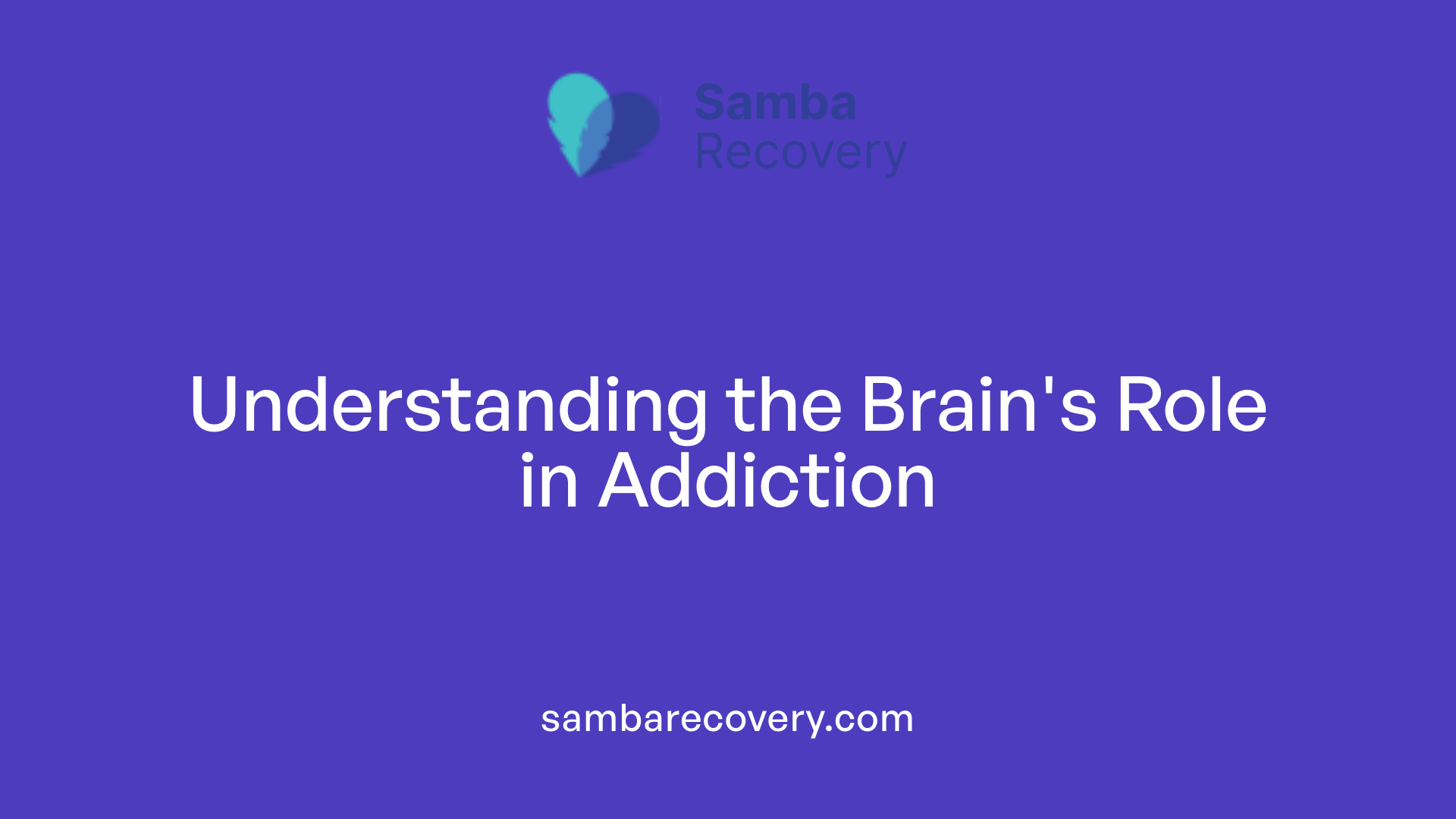
What is the biological basis of addiction?
The biological basis of addiction revolves around profound changes in the brain’s structure and function, particularly within the reward and pleasure circuits. Substance use hijacks these circuits, creating a compulsive need for the substance, which can lead to chronic addiction.
Dopamine pathways play a crucial role in this process. Dopamine is a neurotransmitter associated with pleasure and reward. When a person consumes addictive substances, dopamine floods the brain, creating feelings of euphoria that reinforce the behavior. Over time, chronic use diminishes the brain’s ability to produce dopamine naturally, leading to lethargy and depression when the substance is not present. This dysfunction highlights the brain’s adaptation to addiction, where the reward pathways become reliant on the substance for stimulation.
Impairment in the prefrontal cortex, which governs judgment and decision-making, is another critical factor. This area of the brain becomes less effective at assessing consequences, impacting an individual’s ability to make rational choices regarding drug use. Consequently, those experiencing addiction find it increasingly difficult to control their substance use, prioritizing it over essential aspects of their lives, such as relationships and responsibilities. Addressing the biological underpinnings of addiction through medical treatments and behavioral therapies is essential for successful recovery and managing this chronic disease.
Addiction as a Disorder of Altered Cognition
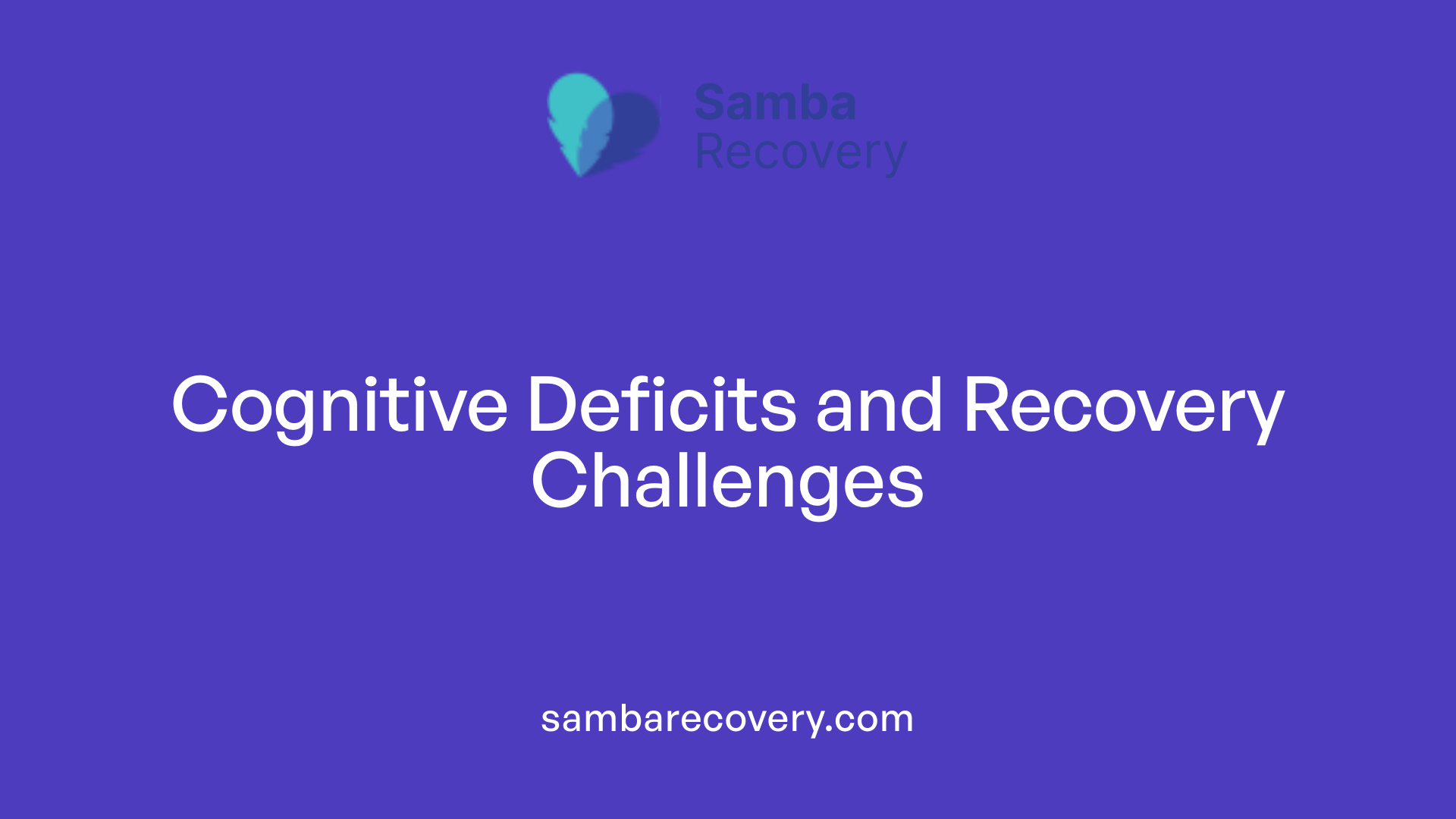
Is addiction a disorder of altered cognition?
Addiction can indeed be considered a disorder of altered cognition. It involves significant disruptions in critical cognitive functions like learning, memory, and impulse control. This is largely due to structural and functional changes in the brain, especially in areas responsible for judgment and decision-making.
Cognitive impairments
Individuals with substance use disorders often experience cognitive deficits that complicate their recovery. These impairments can manifest as difficulties in processing information, making decisions, and controlling impulses. Continued substance use reinforces these deficits, leading to a downward spiral where cognitive decline hampers the ability to quit.
Role of environmental cues
Environmental cues play a substantial role in addiction. As individuals associate certain places, people, or situations with drug use, their brains create maladaptive connections. These associations can trigger cravings, making the recovery process even more challenging. The compulsion to seek substances becomes a learned behavior intricately linked to their context.
Impact on learning and memory
Research shows that addiction severely impacts learning and memory. Neurotransmitter imbalances affect how individuals acquire new information and recall past experiences, further entrenching addictive behaviors. Effective therapeutic interventions need to address these cognitive styles and deficits, making it crucial to develop strategies that consider these aspects to enhance recovery outcomes.
| Aspect | Description | Importance in Recovery |
|---|---|---|
| Cognitive Impairments | Disruptions in judgment and decision-making | Understanding aids in tailoring treatments |
| Environmental Cues | Triggers for cravings and drug-seeking behavior | Addressing cues can help break the cycle |
| Learning and Memory | Impaired ability to learn and retain information | Targeted therapies can enhance retention |
Understanding Different Perspectives on Addiction
How do different perspectives view addiction?
Addiction is a multifaceted condition that can be interpreted through various models, primarily the disease model and the behavioral model.
-
Disease Model: This perspective treats addiction as a chronic brain disease, highlighting the biological underpinnings, such as changes in brain structure and neurotransmitter function. Proponents of this view argue that genetics account for a significant share of an individual’s risk, suggesting predispositions shape vulnerability to addiction. The American Medical Association classifies addiction as a disease, underscoring the need for medical intervention akin to treatments for diabetes or heart disease.
-
Behavioral Model: In contrast, some psychologists focus on the learned behaviors associated with addiction. They posit that environmental factors, like peer influence and childhood trauma, play crucial roles in shaping addictive behaviors. This model emphasizes the role of cognitive processes and stresses that addiction can occur through patterns of reinforcement and habit formation.
Both models intersect, acknowledging the significance of biological factors while also recognizing the impact of environmental and behavioral elements on addictive behavior. This comprehensive approach reflects the complexities of addiction, illustrating that it is not solely a matter of willpower but a blend of physical and psychological influences.
| Perspective Type | Focus | Key Element |
|---|---|---|
| Disease Model | Biological | Chronic brain condition requiring medical intervention |
| Behavioral Model | Environmental & learned behavior | Addiction as learned, reinforced behaviors |
| Integrated View | Both biological and behavioral | Interplay between genetics, environment, and personal choices |
The Impact of Perception on Addiction
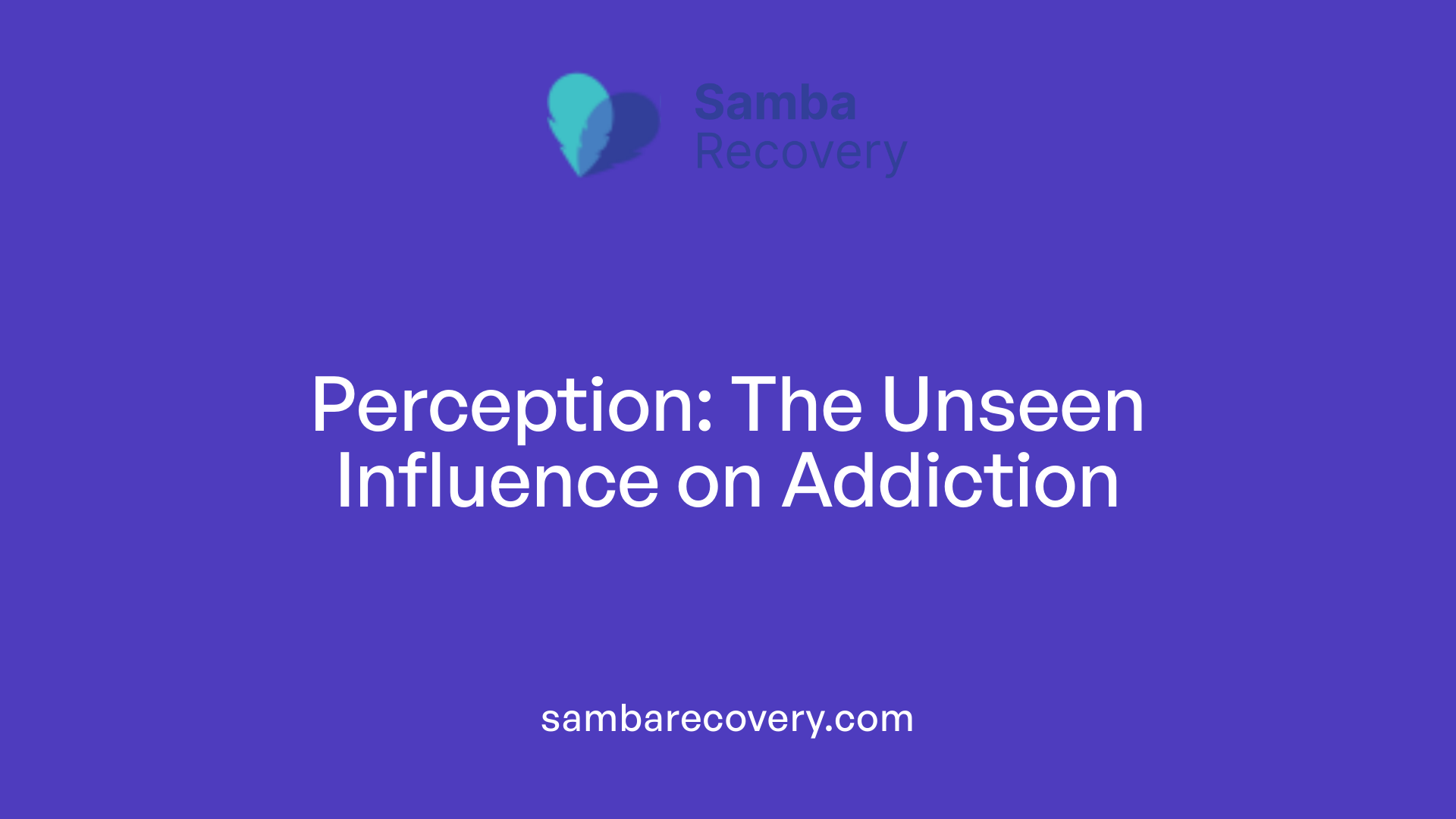
Addiction as a disease of perception
Addiction is often conceptualized as a disease of perception, where individuals suffering from substance use disorders have a distorted view of their relationship with drugs or alcohol. This altered perception can lead them to believe that substances are providing solutions to their emotional conflicts when, in reality, they are the source of many problems. For example, an individual may attribute their daily stress to external factors, using substances as a coping mechanism while failing to recognize the damaging effects these substances impose on their mental and physical health.
Psychological effects of addiction
The psychological landscape of addiction is complex, shaped profoundly by feelings of terror, frustration, and despair. When an individual struggles with addiction, their thought patterns are heavily influenced by substances, which hijack the brain’s reward system by flooding it with dopamine. This manipulation creates a false perception of pleasure and fulfillment, leading to compulsive behaviors and further entrenchment in addiction.
Recovery necessitates a fundamental shift in these perceptions. Therapeutic approaches such as Cognitive Behavioral Therapy (CBT) are essential in helping individuals identify and confront distorted beliefs. This process of radical honesty can enable individuals to reclaim personal accountability and foster resilience against future cravings.
How does perception influence addiction behaviors and recovery?
Addiction significantly distorts an individual’s perception of reality, making substances seem like solutions to internal conflicts rather than the root of the problem. These altered perceptions can exacerbate the cycle of addiction, as they reinforce the compulsion to seek substances as a means of coping with emotional distress. Recovery often involves a profound shift in self-perception and acknowledgment of the addiction’s impact on one’s life. Addressing these distorted perceptions through therapy is crucial to foster durable recovery and prevent relapse.
Challenging the Stigma of Addiction
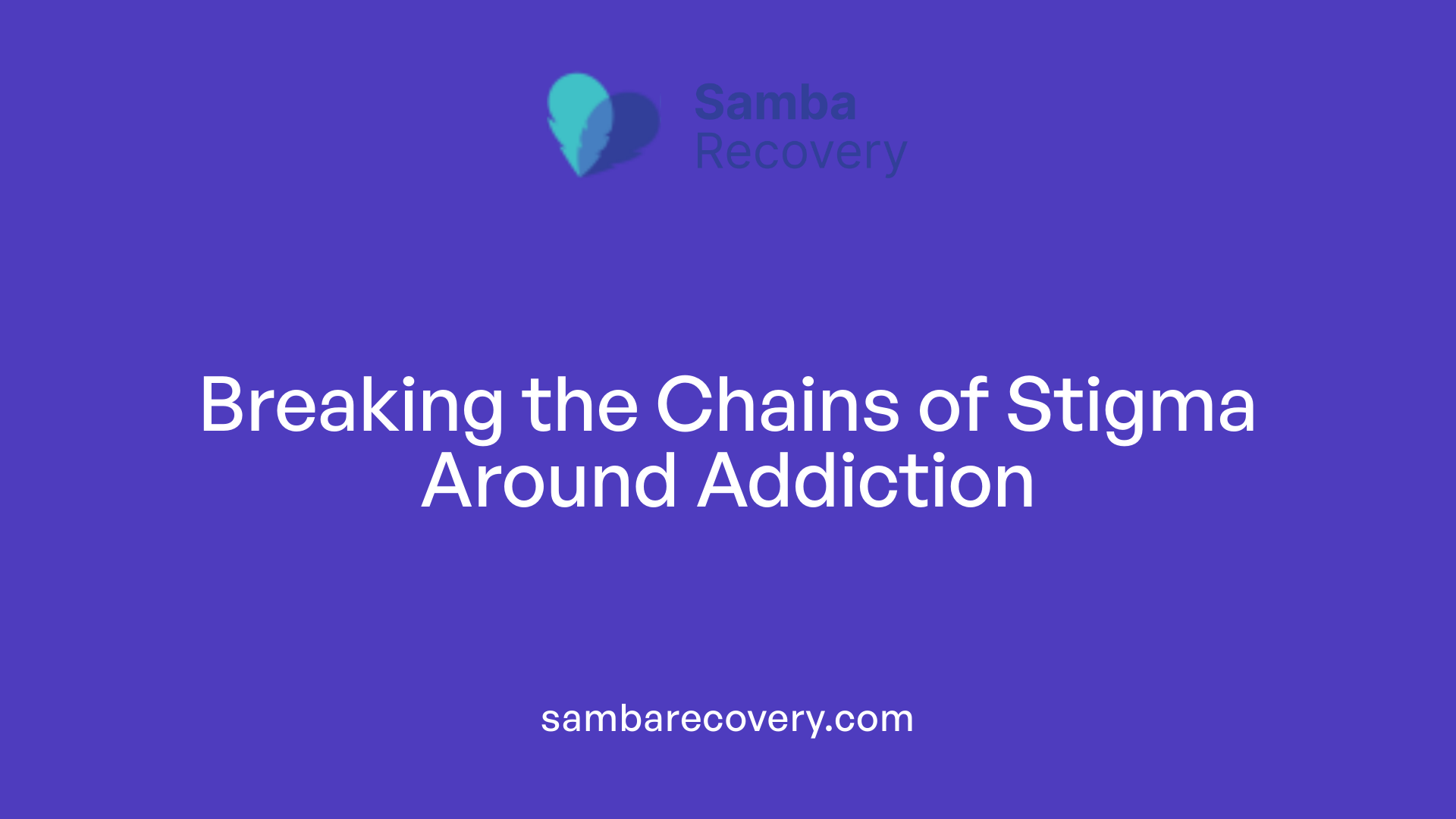
Societal Views and Stigma
Addiction has long been burdened by societal stigma, often seen as a moral failing or a lack of willpower. This perception persists even today, deterring many individuals from seeking necessary help. The narrative surrounding addiction has begun to shift, gaining recognition as a chronic medical disorder characterized by functional changes in the brain. Despite this progress, many still associate addiction with weakness, heightening feelings of shame among those who struggle with substance use disorders.
Role of Education in Changing Perceptions
Education is crucial in dismantling misinformation about addiction. By fostering understanding of its biological underpinnings and recognizing the interplay of genetics and environment, we can reshape societal attitudes. Efforts to educate the public about addiction as a disease can reduce stigma, promoting compassion and support for those affected. Changing perceptions can encourage more individuals to seek help, ultimately improving treatment outcomes and public health.
Treatment Options and Recovery Strategies
FDA-Approved Medications
FDA-approved medications play a critical role in the treatment of addiction. Examples are
- Naltrexone: Reduces cravings for alcohol and opioids by blocking their euphoric effects.
- Acamprosate: Supports recovery from alcohol dependence by restoring balance to brain chemicals disrupted by chronic alcohol use.
These medications are most effective when used in conjunction with behavioral therapies to address the psychological aspects of addiction.
Role of Behavioral Therapy
Behavioral therapy is essential in addiction treatment, as it helps individuals identify and understand the underlying psychological roots of their addiction. Techniques like Cognitive Behavioral Therapy (CBT) assist patients in developing coping strategies and addressing negative thought patterns. By fostering awareness of triggers and cravings, these therapies empower individuals to resist relapse and develop healthier behaviors over time.
Long-Term Management
Addiction is a chronic disease that often requires long-term management. Continuous support and follow-up care are crucial. Individuals recovering from addiction may experience relapses, making ongoing treatment vital. Programs often emphasize building community connections and engaging in support groups, which provide a network of encouragement and accountability. Recovery can involve developing new, positive sources of joy and reward, shifting focus away from substances.
Personal Narratives: A Window into Addiction
Personal Experiences with Addiction
Addiction is often best understood through personal narratives that illustrate its complexities. One individual’s journey through alcoholism reveals a harrowing progression from increased tolerance to serious consequences like blackouts and DUIs. These experiences highlight addiction’s capacity to distort reality, leading individuals to believe that substances improve their lives, rather than recognizing the detrimental effects.
The author recounts a moment of clarity when desperation outweighed denial, prompting the decision to seek help through Alcoholics Anonymous. This realization serves as a crucial turning point, emphasizing the importance of community and support in recovery.
Impact on Mental Health and Recovery Journey
The interplay between mental health and addiction is significant, as seen in stories where individuals battle dual diagnoses, such as Borderline Personality Disorder alongside substance use disorders. This complexity deepens the emotional turmoil experienced, encompassing feelings of fear and despair that are often absent in the lives of those who do not struggle with addiction.
Through recovery, individuals not only confront their substance use but also engage in transformational work that reshapes their self-perception. The journey involves radical honesty and taking responsibility for one’s actions, empowering the individual to reclaim control over their life. Reports indicate that such profound shifts are common, offering a pathway to improved mental health and clarity post-addiction.
The Role of Genetics and Environment in Addiction
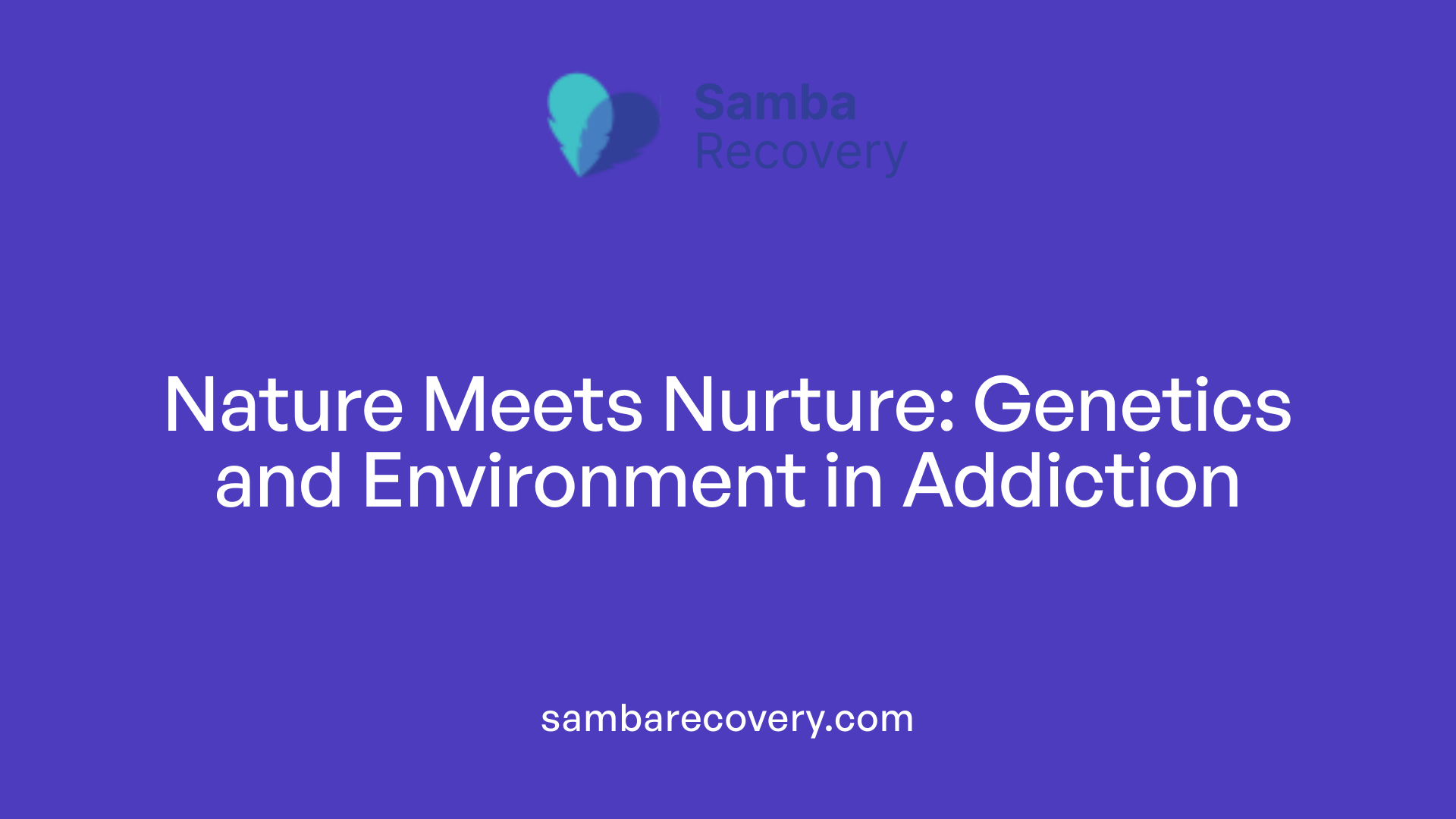
Genetic Predispositions
Genetics play a significant role in the susceptibility to addiction, with research indicating that genetic factors account for approximately 40-60% of an individual’s risk. This hereditary aspect suggests that addiction can run in families, with individuals having a higher likelihood of developing substance use disorders if a close relative has experienced similar issues. Genetic polymorphisms can affect how a person’s brain responds to addictive substances, pointing to the complexity of addiction as more than just a personal choice.
Influence of Environmental Factors
In addition to genetics, environmental factors also contribute greatly to addiction risk. This includes childhood trauma, peer influence, and the social circles an individual is part of. Early exposure to substances, particularly during adolescence when the brain is still developing, significantly increases vulnerability. For example, individuals with a history of abuse or trauma are more likely to engage in substance misuse. The interplay of these environmental influences and genetic predispositions highlights the multifaceted nature of addiction, necessitating comprehensive strategies for prevention and treatment.
| Factor | Description | Impact on Addiction Risk |
|---|---|---|
| Genetics | Hereditary susceptibility accounting for 40-60% of risk | Increased likelihood if family history exists |
| Environmental Factors | Includes trauma, peer influence, and socio-economic background | Elevated risk, especially in adolescence |
Conclusion
Understanding addiction as a disease of perception not only clarifies its complex nature but also underscores the necessity for compassion, support, and scientifically informed approaches to treatment. By addressing both the biological and the psychological facets of addiction, we can better support those affected and dismantle the harmful stigmas that hinder recovery. It’s essential to foster a societal shift towards viewing addiction as a medical, not moral, challenge.
References
- Addiction: A Disease of Perception – New Horizons Recovery Centers
- Alcoholism: A Disease of Perception | Central Office
- Is Addiction a Disease? Science Says Yes – Michigan Medicine
- Addiction: A Disease of Perception – Legends Recovery Center
- Addiction is a disease: We must change our attitudes toward addicts
- [PDF] “Why Addiction is a “Disease”, and Why It’s Important” – SAMHSA
- Addiction: Understanding It as a Disease of Perception
- Addiction: A Disease of Perception – Prescott House
- Addiction: A Disease of Perception – Attain Behavioral Health






